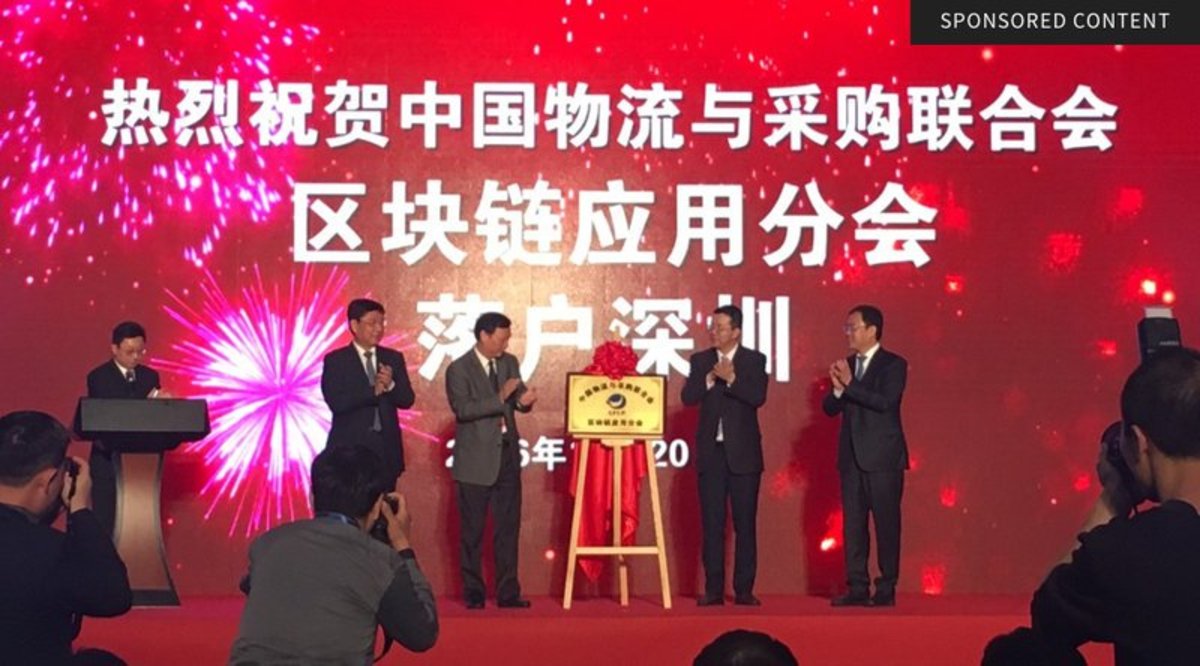
Content provided by BitKan.
At the 2016 China Shenzhen Fintech Summit held on December 20, 2016, the China Federation of Logistics and Purchasing (CFLP) announced the establishment of the Blockchain Application Sub-Committee in an effort to bring the logistics industry into the digital era by leveraging blockchain technology.
The Sub-Committee, a collaborative initiative by the CFLP, several Chinese logistics companies, financial institutions and local blockchain startup, Shenzhen Digital Singularity (BitKan), has devoted itself to transforming the logistics industry by introducing the use of blockchain technology. The Sub-Committee will actively promote blockchain education, it said at the conference.
Liu Yang, CEO of Shenzhen Digital Singularity (BitKan), told Bitcoin Magazine that industry could greatly benefit from blockchain, which has the potential to significantly streamline logistics and supply chains by cutting out intermediaries and upgrading traditionally paper-based and time-consuming processes for the digital age.
In addition to cost savings and greater efficiency, the blockchain could bring an unprecedented level of transparency to all processes by allowing better tracking of orders and assets, reducing errors, and enabling supply chain entities to identify attempted fraud more easily.
"The procedures of logistics are so long that problems occur constantly," said Yang. "Problems like losses and cargo shipping mistakes require powerful tracing ability. It is obvious the blockchain technology can perform well for logistics in that regard."
Shenzhen Digital Singularity (BitKan), the only blockchain company participating on the Sub-Committee, will work with traditional logistics and supply chain companies to develop comprehensive blockchain solutions that address real problems, the company said. It will also be responsible for setting standards and regulations for the field. Yang said he will run for “the Presidency of the Standard Committee.”
Supply chain needs in China have changed dramatically in recent years as China has shifted from being an underdeveloped manufacturing country to becoming a world leader in exports.
China overtook Japan as the leading Asian exporter in 2004, three years after its accession to the World Trade Organization (WTO). The country surpassed the United States in 2007 and Germany in 2009 to become the world's leading exporter.
In 2012, China's merchandise exports accounted for 12 per cent of the world's trade merchandise exports, according to the WTO.
Blockchain for Financial Supply Chains
Initially known as the underlying technology powering Bitcoin, the blockchain has caught the attention of the financial services industry, and now the logistics industry, by promising greater efficiency. Applications and use cases for the blockchain have greatly expanded beyond Bitcoin, Yang said.
Yet, the blockchain is in its infancy, he acknowledged, and players are still exploring the opportunities and challenges related to the technology.
Nevertheless, Yang believes that in the near future, "the perfect combination of blockchain technology and logistics industry will tackle the financial hindrances in logistics, and significantly improve efficiency."
The Sub-Committee said it is working on a "blockchain-based company credit mechanism." The system would use blockchain to "tag and anchor the credit rating of supply chain companies."
The group said it will be targeted at small and medium sized companies which cannot rely on traditional lenders for loans. Big corporations impose tough payment terms on smaller vendors, forcing them to wait for weeks, if not months, before being paid.
"On-credit orders are a big concern for the industry. Upper stream companies cannot receive timely payments from big companies. A one month of delay is commonly seen," Yang said.
"That's why small companies are struggling. Banks will simply turn away: they need factories and warehouses as collateral. Blockchain technology, however, can help by making company financials transparent to the extent that the financial institutions can understand their operational status thus, ultimately, removing the hindrance for loan."
Founded in 2013, Shenzhen Digital Singularity (BitKan) was launched by former employees of China-based IT and internet giants, Huawei and Tencent. The company operates BitKan, a popular all-in-one app that lets users track bitcoin’s price, set alerts, keep up with industry news and trade bitcoins over-the-counter.
This article constitutes sponsored content and as such does not necessarily represent the opinions or any endorsements of or by Bitcoin Magazine, its affiliated publications, staff or parent companies.










